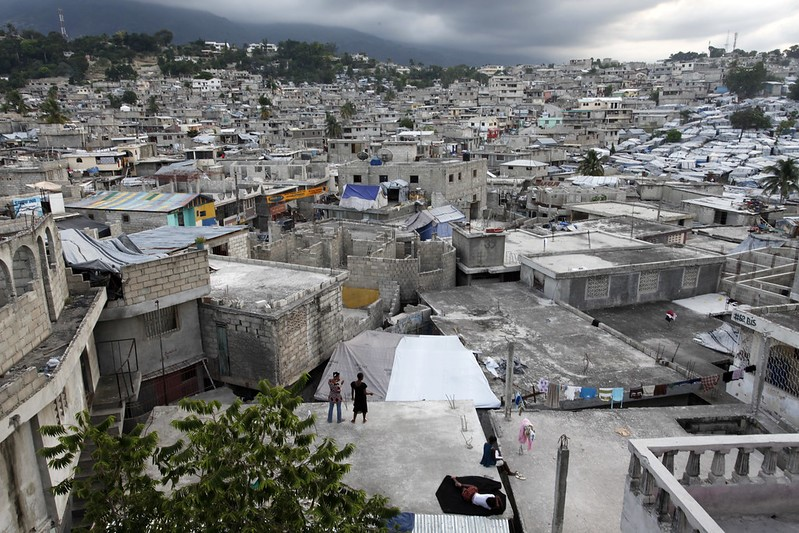US convoy attacked in Haiti amidst deepening political instability

By Polina Isangulova, BSc Social Sciences, Arts and Humanities
On Monday 14 November 2022, shots were fired at a US embassy convoy making its way into Port-Au-Prince, Haiti. The attack, attributed by local officials to the ‘400 Mawozo’ gang, is one in a string of violent incidents caused by the increasing gang violence in the city. Although the attack was not lethal and none of the embassy staff were wounded, a Haitian commercial driver suffered from injuries, according to a State Department spokesperson. The official statement made did not identify a motive for the attack.
A country already prone to natural disasters, Haiti also suffered a magnitude 7.2 earthquake in August 2021, killing around 2,000 people and leaving thousands more injured and homeless. This caused intense food insecurity throughout the country with the World Food Programme estimating 1.3 million Haitians are at risk of severe hunger. In addition to this, the fiercely territorial nature of the occupying gangs has meant that healthcare centres and pharmacies are widely inaccessible to the public, adding to the terror and instability of life in the city.
“The reach and brutality of gang-violence in Haiti continuously exacerbates the urgent humanitarian crisis currently facing the country”
The reach and brutality of gang violence in Haiti continuously exacerbates the urgent humanitarian crisis currently facing the country, with the International Organisation for Migration (IOM) reporting 90,000 out of 113,000 internally displaced people in Port-Au-Prince were forced out of their homes due to ‘urban violence linked to inter-gang, gang-police, and social conflicts’. This, along with frequent kidnappings for ransom, incredibly high fuel prices, and an intense cholera outbreak, has led to the United Nations (UN) Secretary-General Antonio Guterres urging the international community to take action and address the country’s security crisis.
The rapid decline in Haiti’s political and economic state dates back to the assassination of the serving President Jovenel Moise on 7 July 2021. Entering in the early hours of the morning, a commando group infiltrated the president’s estate and shot him to death. Although directly after the event, Haitian police mobilised quickly to try and arrest the suspects, the parliamentary collapse that followed slowed the investigation, leading to an unstable military and political scene. This gave street gangs and criminals the upper hand in gaining control of the capital city.
Over the past year, over 200 gangs have laid claim to parts of Port-Au-Prince, riding into the city on motorbikes with assault rifles on their backs. The turf wars that ensued did not spare the civilians simply trying to live normally, with children being snatched from their families and rape being used as a scare tactic to keep people in line. According to the UN, in the days between 9 and 17 July 2022, 209 people were killed as a result of a gang fight over an area on the outskirts of the city. These territory skirmishes have become more and more commonplace as the gangs push into the administrative centres and begin to outnumber and push out state officials.
As the political structure of the country continues to dissolve and the humanitarian crisis escalates, Haiti has garnered a lot more interest from the international community. Cesar Muñoz, a senior Americas researcher at Human Rights Watch, asks other countries to ‘do much more to support Haitian civil society groups and UN agencies as the crisis in the country deepens’. However, as seen by the shooting of the US embassy convoy, there is resistance and animosity towards international involvement from the city gangs. To take further steps to aid the Haitian people, the UN has to take precautions and care with its approach.
Photo Caption: A view of Delmas 32, one of the neighbourhoods in Port-Au-Prince (Credit: Creative Commons).



